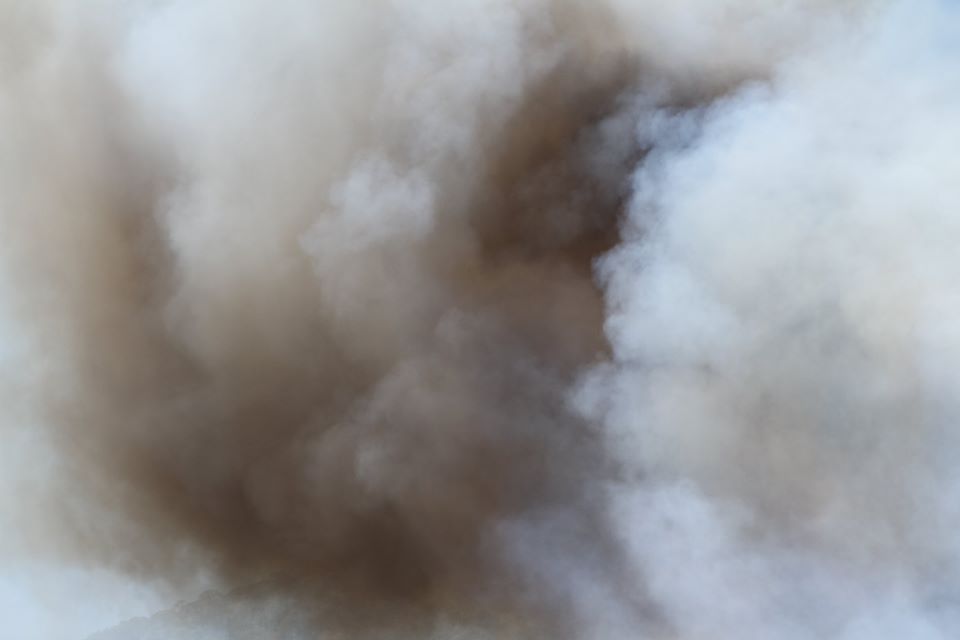
FOREST FIRES, SMOKE & OUR (RESPIRATORY) HEALTH – WHAT TO DO?
It seems odd to talk about forest fires in the middle of winter. However, I am posting this with friends and family in mind who live in either Australia or California. May some of you find this information helpful and get some relief from the effects the smoke and all the toxins has on our well-being.
Be safe and green blessings,
Gudrun
“One nature. We are nature. All people and all species.
We are interconnected with nature and with each other. What we do to the planet and its living creatures, we do to ourselves.”
The extreme forest fire season, once again, drives home the importance of making lifestyle choices that minimize our negative impact on the environment. Lots to be said about this but I want to focus on how you can protect yourself from the potential damaging effects of the smoke so many of us are inhaling these days.
The most obvious area of our body that are affected are the respiratory tract (sinuses, throat, bronchials and lungs) as well as the eyes. However, the long-term effects are not limited to these systems.
The exposure to smoke over extended periods of times creates irritation and inflammation to the tissues of our body. Many, many toxins are part of the smoke we are breathing in.
What to do?
1. The obvious is to reduce outdoor activities and close windows.
2. DIET: Avoid all foods you know you are sensitive to as well as mucous forming foods. For many people dairy, refined sugar and wheat are known to cause extra mucous. However, depending on the individual, any food may trigger this response. A health-giving diet with lots of fresh fruits and vegetables, seeds and nuts, green smoothies and vegetable juices will provide the greatest support. Eliminate all junk food. Anything that does not provide the building blocks required by the body to regenerate healthy cells, should not be considered as food. There is no such thing as health foods. Food supports the body in regenerating healthy cells, if it does not, it should not be considered food!
3. WATER: Drink plenty of good water, stay hydrated.
4. SUPPLEMENTS: Vitamins C (high dosages), A (beta carotene in high dosages) and E
5. HERBS: Herbs to support and soothe the respiratory system are high in mucilage. They may be enjoyed as a tea, if desired sweetened with honey, or if used fresh as a juice. Some examples are: Plantain (Plantago spp.), Marshmallow – root/leaf- (Althea off.), Mullein (Verbascum thapsus) or the seaweed, Irish Moss (Chondrus crispus).
6. ESSENTIAL OILS: diffused in the air with a diffuser or as a steam inhalation, for example Thyme, Oregano, Clove, Spruce, Pine, Lavender and Eucalyptus. These essential oils have antimicrobial properties and the ones from evergreen trees exert their healing effect especially on the respiratory tract.
7. PLANTS: Plants can help clean the air of pollutants. Different plants have different capabilities, both re: the type and amount of pollutants they clean.
8. AIR PURIFIERS: Negative ions neutralize pollutants to some degree.
9. SORE THROAT: Drink hot lemon juice with honey. Gargle with sea salt and warm water or sage tea.
10. EYES: My favorite herb for eyes as an eye wash is Eyebright (Euphrasia off.). Other possibilities are Chamomile or Fennel. Make a tea with either one of them, strain extremely well and either use with an eye cup or soak small pieces of sterilized fabric in the tea and lay on closed eye lids. Any of these applications will be very soothing and rejuvenating to the eyes. Make sure that the tea you are using is sterile. You can keep the tea in the fridge in a sealed glass jar for up to three days.
I hope this helps. Enjoy the summer despite the adversities.
Green Blessings,
Gudrun




Leave a Reply